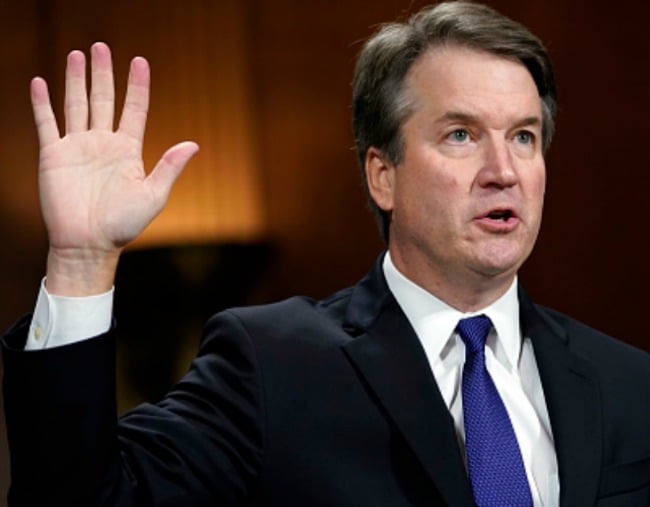
Brett Kavanaugh has been sworn in as a US Supreme Court justice after the bitterly polarised Senate narrowly confirmed him.
The Senate vote delivered an election-season triumph to President Donald Trump that could swing the court rightward for a generation after a battle that rubbed raw the country’s cultural, gender and political divides.
Kavanaugh was quickly sworn in at the court building, across the street from the Capitol, even as protesters chanted outside.
The near party-line Senate vote was 50-48, capping a fight that seized the national conversation after claims emerged that Kavanaugh had sexually assaulted women three decades ago – which he emphatically denied.
Those allegations magnified the clash from a routine Supreme Court struggle over judicial ideology into an angrier, more complex jumble of questions about victims’ rights, the presumption of innocence and personal attacks on nominees.
Acrimonious to the end, the battle featured a climactic roll call that was interrupted several times by protesters in the Senate galleries before Capitol Police removed them. Vice President Mike Pence presided over the roll call, his potential tie-breaking vote unnecessary.
Listen to Mia Freedman and Rachel Corbett unpack everything you need to know about the allegations against Brett Kavanaugh on Tell Me It’s Going To Be OK. Post continues after audio.
Trump, flying to Kansas for a political rally, flashed a thumbs-up gesture when the tally was announced and praised Kavanaugh for being “able to withstand this horrible, horrible attack by the Democrats.”
Democrats hope that the roll call, exactly a month from elections in which House and Senate control are in play, will do the opposite, prompting infuriated women and liberals to oust Republicans.
Republicans hold only a 51-49 Senate majority and therefore had little support to spare.

Top Comments
“The Handmaid’s Tale, the prequel. Coming soon..”
Yeah, because every social media user is a better judge of guilt than the FBI...
Seeing as though the FBI's investigation was so thorough and all...
And a better judge of correct procedure for crime investigation as well it seems.